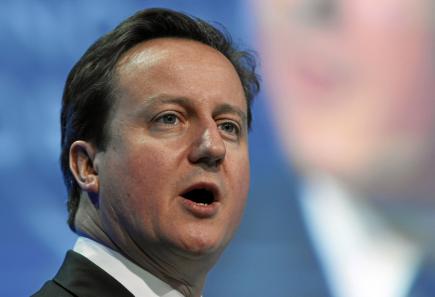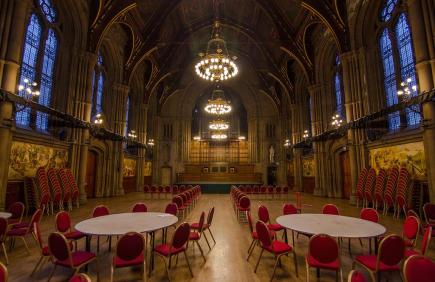Wednesday’s Queen’s Speech reaffirmed the government’s commitment to creating a ‘Northern Powerhouse’ with Manchester at its centre.
Yet a report from the University of Manchester has shown that government spending on research into developing the powerhouse is increasing at only a third of the rate of that in the south.
Researchers used Office for National Statistics data to demonstrate that the east and south-east of England received an increase of £3.02 per person in government funding for research between 2012 and 2013, compared with a rise of a mere 99p across the north-west and east.
Lead researcher, Dr Martin Yuille from the University’s Centre for Epidemiology in the Institute of Population Health said: “Our work identified a large and growing disparity in funds spent on research in two different parts of the UK.
“We drew attention to the contrast between the south-east and the north of England because of the high profile that the latter region has had recently, for example with the plans for devolution in Greater Manchester.”
The letter, published in the UK medical journal, The Lancet, took into account adjustments for inflation and the population of London when assessing the numbers.
The figures were calculated by taking the total funding in 2012 and 2013 and dividing this by the overall population of the assessed regions to find the average per head.
These statistics show that the gap in investment is growing – rather than decreasing – in accord with the Chancellor’s aims, resulting in a figure valuing northerners at £8.75 per person, as opposed to a massive £60.18 in the south.

INVESTMENT GAP GROWING: Cameron’s government values Northerners at £8.75 a head, compared with the south’s £60.18 figure (© World Economic Forum, with thanks)
The research appears to contradict the Conservative vision announced in 2014 from within the Manchester Museum of Science and Industry to ‘make the cities of the north a powerhouse for our economy again – with new transport and science and powerful city governance’.
Dr Arpana Verma, Director of the Centre for Epidemiology at The University of Manchester said: “The gap between funding is already large but these figures show it is also growing. In the north, we already have some of the greatest inequalities in health outcomes.
“If the government wants to build the economy and reduce inequalities in the north then it needs work to bring parity to this situation and encourage innovation.”
Chancellor George Osbourne first used the ‘Northern Powerhouse’ phrase over a year ago to encapsulate plans to improve connectivity between cities across the north.
The aim is to build up the city of Manchester as a source of business and technology to rival the pull of London and redress the economic imbalance between the north-south divide.
Plans include the building of the new HS2 rail network and the devolution of powers to Greater Manchester, yet the controversial ‘Devo Manc’ policy has been accused of merely attempting to create a ‘mini London’ as the answer to solving inequality.
Wigan Labour MP Lisa Nandy has cautiously supported the idea of devolution but said that the plans need to respect the needs of local areas to bring the greatest benefits.
With devolution comes the prospect of an elected mayor who will have powers over policing, planning, housing and transport and control of over £1billion of public money.
They will be able to run franchised bus services, introduce an ‘Oyster-style’ ticketing system, and take control of the existing health and social care budgets which have so far been divided across the ten Greater Manchester local authorities.

INFLUENCED OUTCOME OF SWING SEATS: The Northern Powerhouse is believed to have had a strong appeal to Northern voters (© Steve Parkinson, with thanks)
However the ‘Devo Manc’ deal does not include education, and covers a fractional £1billion of the estimated total of £22billion currently spent by Greater Manchester public bodies.
The message of the Northern Powerhouse is believed to have had strong appeal to voters in the north, and perhaps even influenced the outcome of decisive northern swing seats.
In Cheadle, newly elected Conservative MP Mary Robinson, who ousted former deputy Lib Dem whip Mark Hunter, cited the development of the northern powerhouse as one of her key aims for the constituency, and one of the backbones of her campaign.
“This is about serving Cheadle and getting the best for Cheadle from this Parliament; looking at the Northern Powerhouse and the investment we can start to look forward to coming to our area and I want to make sure that Cheadle gets the best of it,” she said.
Dr Verma added: “Targeted funding for innovation has been shown to drive strategic objectives. There’s currently a feedback loop in operation in England where more funding for the south drives ever greater increases.
“If the government really wants to push the idea of a Northern Powerhouse, addressing the large and growing disparity in funding will make a difference across all sectors.”
Image courtesy of Ian Livesey, with inset from Number 10, with thanks



